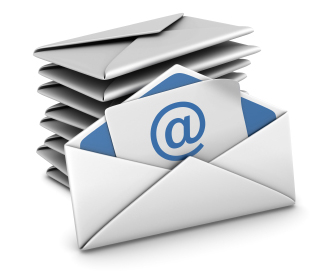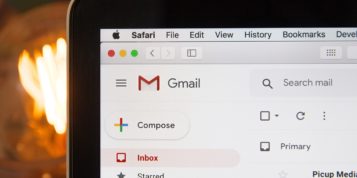Maximum reach for minimum spend – that’s the strategy of most social media marketing campaigns. Essentially it’s viral marketing, which encourages and inspires a company’s stakeholders to do the marketing for them. Mark Zuckerberg was just 11 years old when one of the most dramatic of these campaigns took place. It happened long before Twitter, Facebook or YouTube ever existed, even as ideas.
The more seasoned digital marketer may just about remember a little known but decent email service with around 500,000 users that back in 1996 started to use its email signatures in a creative way for viral marketing. The company simply included a short message promoting its service in the signature of every email sent, inviting new recipients to sign up. Within a year the company’s users had grown 24-fold to more than 12 million, earning the attention of the biggest players in the technology industry. That service was called Hotmail, and by the end of 1997 it was acquired by Microsoft for $400 million.
As Hotmail proved more than 16 years ago, there’s huge potential in corporate email signatures as a marketing platform. Like Mark Zuckerberg, most social media marketers were still in school when this campaign took place, so really you can’t blame them for allowing the channel to go untapped. With so many social media platforms and tools now available, marketers are often distracted by the “new” in ignorance of the simple and demonstrably more effective.
An average employee sends 200 work related emails every week – which mounts up to 1 million emails a year for a business with 100 employees. Marketing teams are already in control of all other external communications, and yet corporate branding of the millions of emails sent by their colleagues is often regarded as the responsibility of the IT department. When businesses do try to tap into email signatures as a marketing channel they often end up labouring over a long, boring and rarely enforced ‘email policy’ that sets out all the dos and don’ts of sending emails. Rather than hoping that employees will adhere to such policies, marketers should be able to take control of their corporate email to drive consistent, relevant and targeted marketing messages to their company’s stakeholders.
Even when marketers are given control of corporate email branding, they often also have to put a great deal of effort into getting a marketing priority onto their IT department’s to-do list. IT guys are usually more interested in business operations and security issues than sales and marketing. While some marketers do develop effective working relationships with their IT departments to changes and updates to email signatures, the method taxes the time and resources of both departments.
The fact is that every stakeholder receiving email from a company presents an opportunity, so marketers failing to influence company email systems are missing a trick. Sales and marketing aren’t the only departments that can drive value from effective, consistent and measurable email signatures. Departments like human resources, legal or accounting have a unique audience, and directly managed email signatures with specifically tailored marketing messages can help otherwise overlooked recipients become advocates for the marketer.
In tough economic times marketing teams are in particular need to gain the most value of every stakeholder channel possible. Email signatures offer an inexpensive, direct engagement tool. Using a management system like Brand and Sign from The Email Laundry, marketers can glean open and click-through data that shows the effectiveness of company wide signatures, but also monitor the performance of different departments and individual employees – just as you’d expect an effective email marketing system to do. Analysis reports provide detailed insight into not only how many emails were sent by each employee during every campaign, but which recipients clicked-through to which senders’ emails most frequently.
Nine tenths of outgoing corporate correspondence is via email, yet often the only branding any corporate email carries is the sender’s email address. This is further exacerbated by businesses trending more toward mobile working, with employees operating multiple communication devices such as laptops, tablets and mobile phones. An April 2011 study sponsored by Google showed that 82 per cent of smartphone users check and send email on their mobile.
This means that many business emails only publicise the sender’s preferred mobile phone handset, with messages such as ‘Sent from my iPhone,’ ‘Sent from my BlackBerry® wireless device’ or ‘Sent whilst trying not to drop my iPad.’ Apple and Blackberry automatically add these email signatures, which drive a business benefit for them, but somewhat to the detriment of senders’ use of the marketing opportunity offered by email signatures.
Marketers should be able to ensure that every email sent by every company employee automatically contains vital marketing information, such as banners, links to relevant company social media profiles, information about current promotions and recipient relevant pages of websites – no matter what device an email is sent from.
Not only does corporate email all too often lack effective and consistent marketing messages, but regularly it fails to comply with the legal requirements of The Companies Act 2006. This legislation requires companies to include their registered company name and registration number, place of registration and registered office address in every sent email, with penalties of up to £1,000 for non-compliance. Businesses should ensure every email that leaves the company is guaranteed to include this mandatory information – both from mobile devices and PCs.
The logistical side of each company setting up such personalised company-wide email signatures can be a nightmare, tied up in the kind of mind-numbing email policies mentioned above. A cloud-based service such as Brand and Sign makes it simple. Marketers simply set up employees’ emails to pass through the cloud-based server, which automatically applies email signatures to every message sent by a company, regardless of whether it is sent from a mobile device or a PC. The automatically applied signatures include the legally required company registration details together with measurable, relevant marketing messages, tailored to each department individually.
Cloud-based email signature services can enable marketers to bypass the need to include their IT department in the process – and make the most from their corporate email by transforming every corporate email sender into a relevant, targeted and accountable email marketer.






